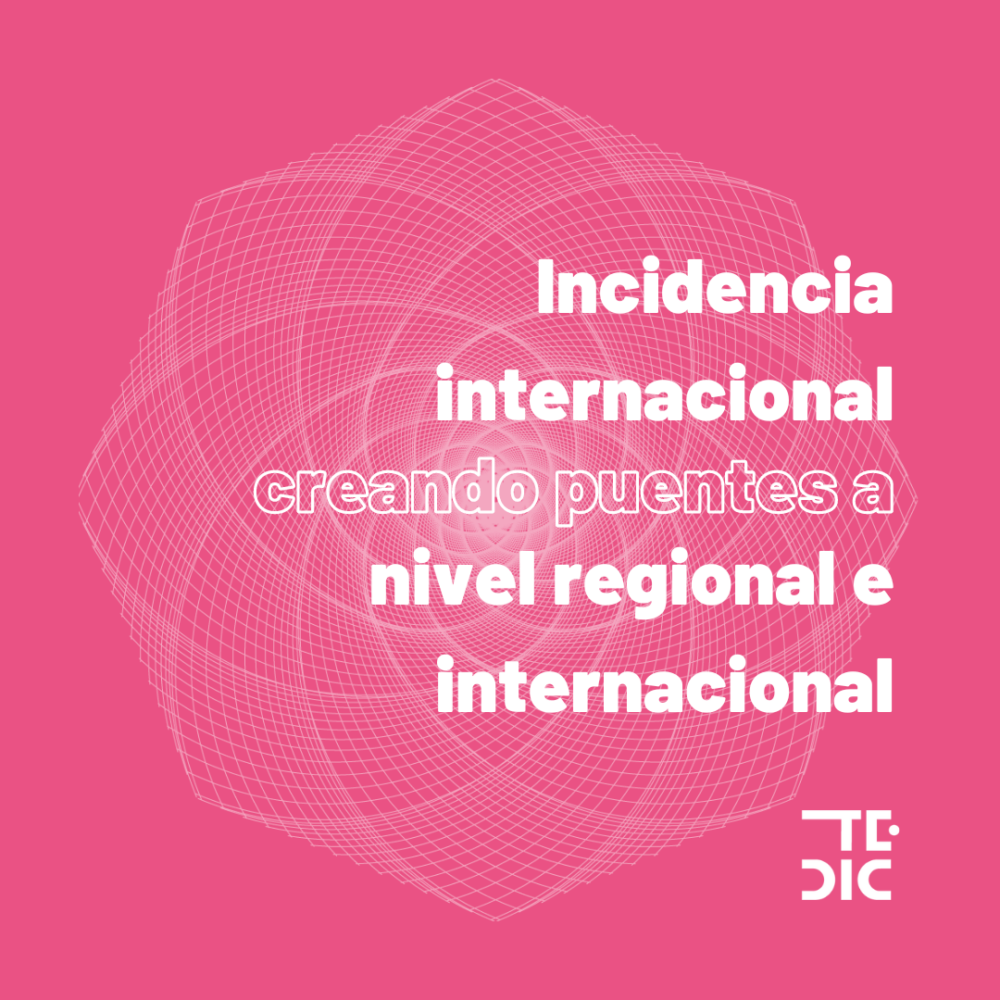
Incidence at local, regional and international levels for the generation of public policies based on scientific evidence is part of our work agenda, which, based on an approach to global issues that allows us to articulate and connect with other actors, transcends the borders of Paraguay. The objective of these spaces is to echo our reality in other latitudes and to learn about other realities in order to understand our own better
Recognising the importance of occupying spaces at the local and international levels, throughout this year, we participated in workshops, roundtables, international forums, virtual and in-person presentations, and many other events in order to meet these objectives. Continuing with the international advocacy work carried out in the first 4 months of the year, in this blog, we invite you to know a summary of the extensive journey of our quest to reconcile the advancement of digitisation with a human rights perspective within the international agenda.
Presence in the leading Internet governance forums and events.
Both RightsCon and the Internet Governance Forum (IGF) stand out as the preeminent events in our Internet governance advocacy agenda, central to our fight for respect for digital rights. RightsCon, known for its focus on human rights in the digital realm, provides a unique platform for activists, technology experts, policymakers, civil society and academia to collaborate in formulating strategies to address the current challenges of our time. On the other hand, the IGF, organised by the United Nations, brings together a wide range of global stakeholders to discuss critical issues affecting the Internet and its governance. TEDIC believes that both events are crucial because they not only facilitate the creation of inclusive and human rights-centred policies but also provide a space for us as civil society to exert influence to ensure that the Internet remains a safe, open and accessible space for all people, reflecting diversity and plurality from the Global South.
RightsCon 2023 – June 2023, San José, Costa Rica
After three years of virtual editions due to the COVID-19 pandemic, the RightsCon global conference returned to a face-to-face format in Costa Rica, a country noted for its rich biodiversity in Latin America. The selection of Costa Rica as this year’s venue is significant, especially because a central and emerging theme of the conference was the critical assessment of the negative impact of the technology industry on the climate crisis, thus raising a necessary look at environmental justice and intersectionality between digital rights and sustainability.
RightsCon Costa Rica 2023, in its twelfth edition, marked a significant milestone in the history of the conference since its inception in 2011, being the largest conference to date in both the number of sessions and participants. With 8,332 participants in attendance, including 2,871 face-to-face and 5,466 online, the conference brought together representatives from 174 countries and 689 organisations, although several people were unable to attend meaning that key voices from the Global Majority, including people from Africa, Asia Pacific, Latin America and the Caribbean, the Middle East, Eastern Europe and Central Asia, as well as at-risk communities facing conflict, crisis, repression, criminalisation and marginalisation around the world, were absent. This expansion, with its complications, reflects the growing importance of RightsCon in the global digital rights agenda, where crucial issues affecting the future of technology and human rights are being discussed.
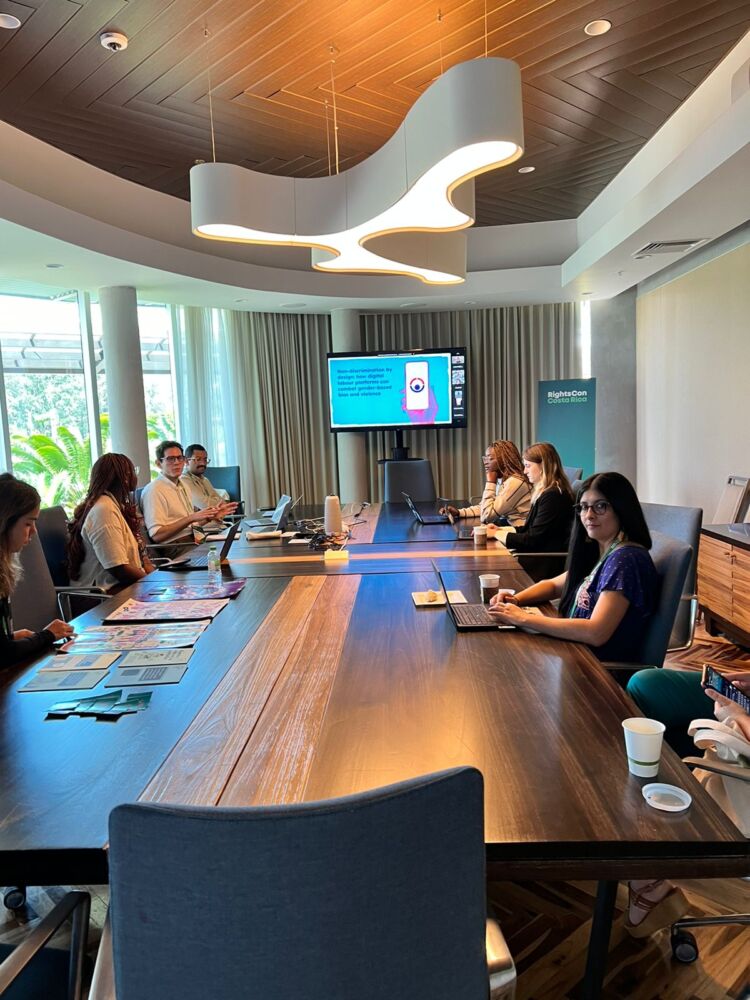
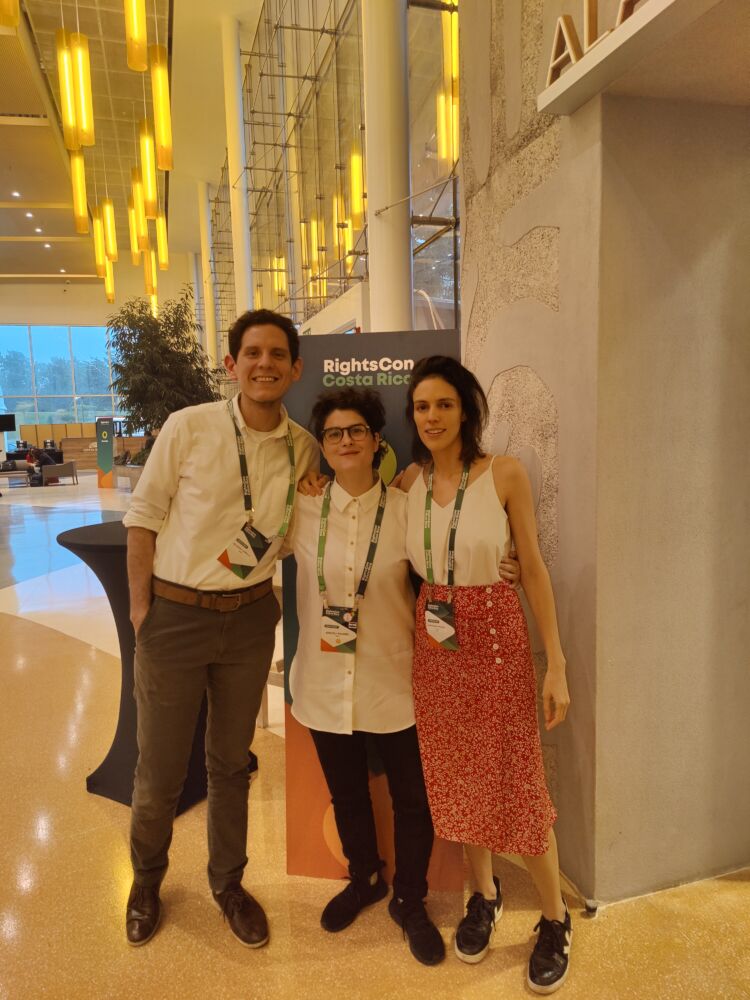
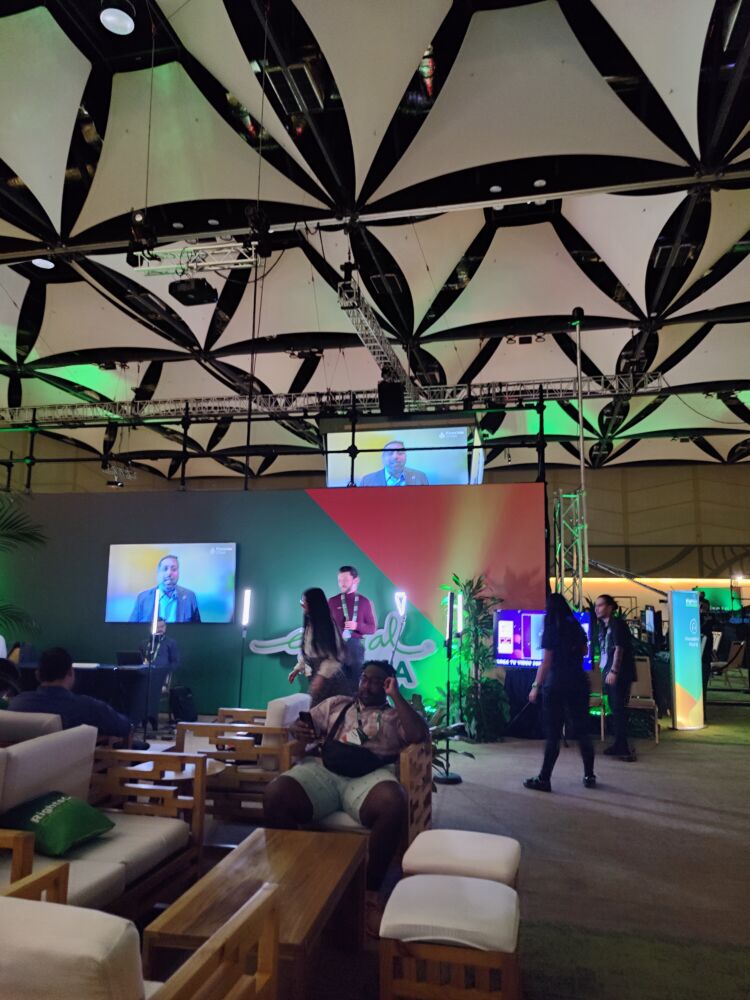
From TEDIC, we participated in person, being in charge of 8 sessions with the participation of Maricarmen Sequera and Eduardo Carrillo, co-directors of the organisation, and Araceli Ramirez, coordinator of the communication area of the organisation.
In addition to the eight organised sessions, there were other discussion tables and participation in different spaces for dialogue and training with the aim of influencing the regulatory and technological policy agendas at the global and regional levels, establishing new alliances and offering critical approaches to evaluate the various international agreements under discussion.
Sessions organised:
- Session 1: “Internet Service Providers and Data Privacy Rights: Challenges, Trends and Ways Forward in Latin America and Spain”.
- Session 2: “Seeking Multilateralism in the Platform Economy: Strategies for Promoting Workers’ Rights in the Global South”
- Session 3: “ Reclaiming and Building Workers’ Power in an Era of Workplace Surveillance”
- Session 4: “ Dialoguing on inter-American norms to build public and democratic debate online.”
- Session 5: “Non-discrimination by design: how can digital work platforms combat gender-based bias/violence?”
- Session 6: “Data and Action: Using Data Analytics for Incident Response and Threat Prevention”
- Session 7: “Neither China nor Silicon Valley: a regulatory initiative from Latin America and the Caribbean.”
- Session 8: «F*ck it, we’ll do it ourselves: building products to prevent and counter gender-based violence online.»
In addition, throughout the week of the event, we participated in several private meetings and discussion sessions. One of these meetings convened us as a member organisation of the AlSur consortium, which brought together more than 35 representatives of civil society and governments of the region – including Chile, Peru, Brazil, Colombia, Guatemala, Costa Rica, Dominican Republic, Bolivia – and the participation of the Special Rapporteur for Freedom of Expression of the Inter-American Court of Human Rights (IACHR) in the private session “Building a Latin American agenda for digital security”. In this session, we debated and explored the need to build a Latin American agenda on digital security, a debate that we have been following for some time.
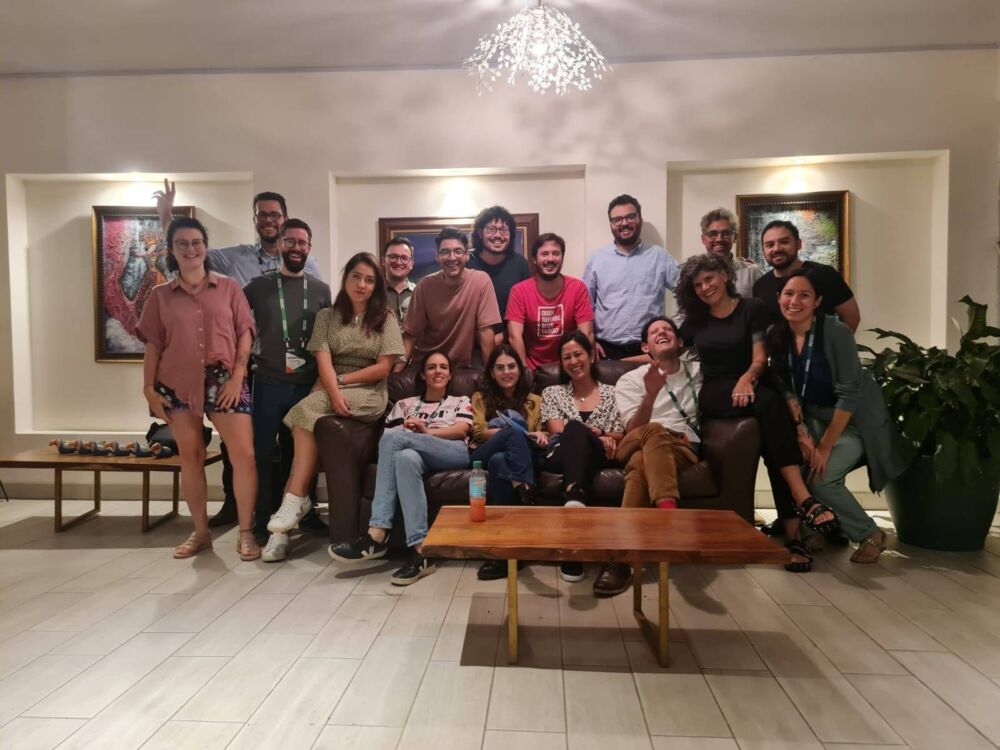
IGF 2023 – October 2023, Kyoto, Japan
In its eighteenth edition, the Internet Governance Forum (IGF) was held in October this year in Kyoto, Japan. Since its inception in 2006, the IGF has been an annual space for multiple stakeholders, including governments, businesses, civil society and academia, to discuss relevant Internet issues such as the upcoming presentation of the UN Global Digital Compact (GDC) document, the regulation of Artificial Intelligence (AI) technologies, the regulation of platforms, the narrowing of gaps in the use and access of technologies and the need for sustainable approaches to the climate crisis. TEDIC has participated in this event since 2014. This year, Eduardo Carrillo and Maricarmen Sequera were present as co-directors of the organisation, and were in charge of the following sessions:
- Session 1: Advancing digital inclusion and human rights: ROAM-X approachThis session focused on how digital inclusion can improve the respect and promotion of human rights in the digital environment, considering aspects such as equitable access to technology and the importance of digital literacy.
- Session 2: Strategic Litigation in LATAM on Gender Digital Violence
In this session, we address the challenges and strategies related to strategic litigation in cases of digital gender-based violence, a critical issue in the fight for rights and gender equality in the digital space. - Session 3: Strengthening worker autonomy in the modern workplace
In this session, we discuss how digital transformation of work is redefining the boundaries of employer-employee relationships, addressing the need for changes in labour issues in the platform economy.
We also participated in the closed event “Putting Gender Equality at the Heart of the Global Digital Compact” convened by the Association for Progressive Communications, UNFPA, Alliance for Universal Digital Rights, Equality Now, Pollicy, Derechos Digitales, UN Women, Digital Rights Foundation and World Wide Web Foundation, in which a series of conversations took place between member states and civil society organisations on how to make gender a cross-cutting theme of the Global Digital Compact
In addition, together with the other organisations that are part of the AlSur consortium, we participated in our annual meeting to advance the strategic planning agenda, taking advantage of our presence in Kyoto to dedicate an entire day to finalise the design of the consortium’s governance scheme, with a view to a process of institutional strengthening that has been underway since 2022.
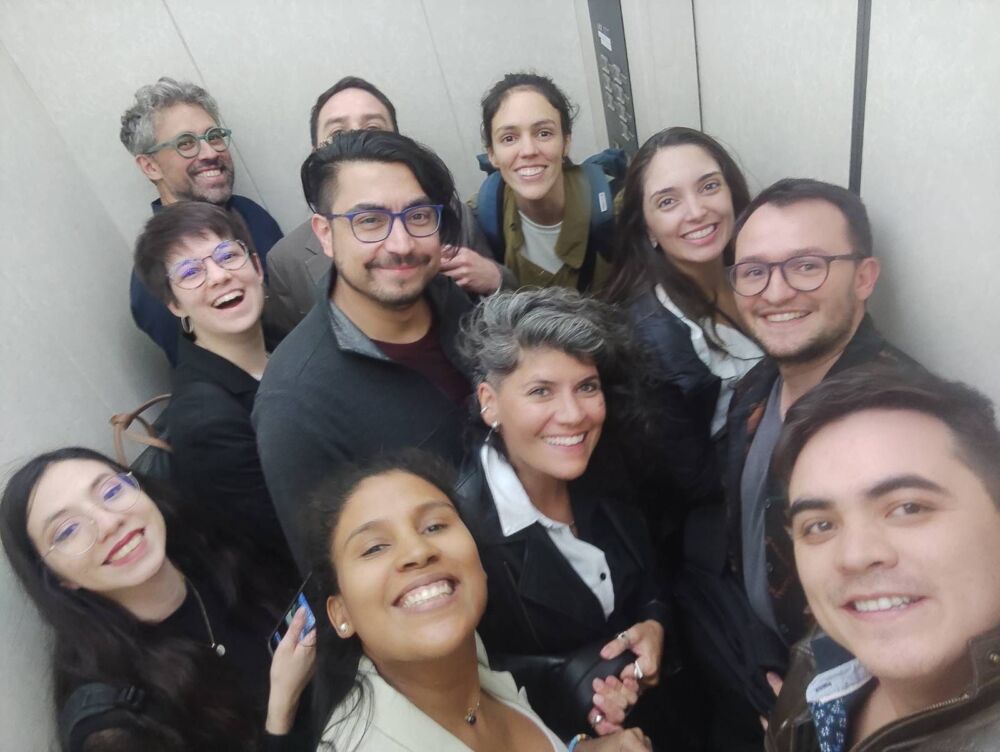
Key events in open data and techno-politics
ABRELATAM and CONDATOS 2023 in Montevideo – Uruguay
Between the end of October and the beginning of November, we participated in several key events for our region in terms of open data and technopolitics. These events represent an interdisciplinary space for collaboration between civil society, academia, private companies and government representatives. In its 2023 edition, ABRELATAM focused on the discussion of topics such as the sustainability of open data policies and democratic strengthening by using open data. From TEDIC, Leonardo Gómez, coordinator of democracy and techno-politics projects, participated in the panel “Use of open data in electoral contexts”, and Maricarmen Sequera, co-director of the organisation, in the panel “From North to South: building digital policies and data on digital rights”.
Data Festival 2023 in Punta del Este – Uruguay
Also in November, we participated in the Data Festival, which took place between 7 and 9 November in Punta del Este, Uruguay, and brought together more than 400 delegates from governments, multilateral organisations, private sector representatives, academia and civil society. The festival aims to foster collaboration and dialogue on the importance of data in our society today, with special emphasis on achieving the Sustainable Development Goals (SDGs). Leonardo Gómez, coordinator of projects related to techno-politics, participated in the roundtable discussion on the importance of making visible, educating and raising awareness of the figures of gender violence facilitated by technology, coordinated by Cultivando Género (Mexico), Amaranta (Chile) and Fundación Avina (Latin America).
During the session, we presented our lessons learned about the survey of technology-facilitated violence figures with a gender perspective, the difficulties and challenges, and the strategies that worked to bring them closer to both communities and governments to prevent this violence and influence public policies.
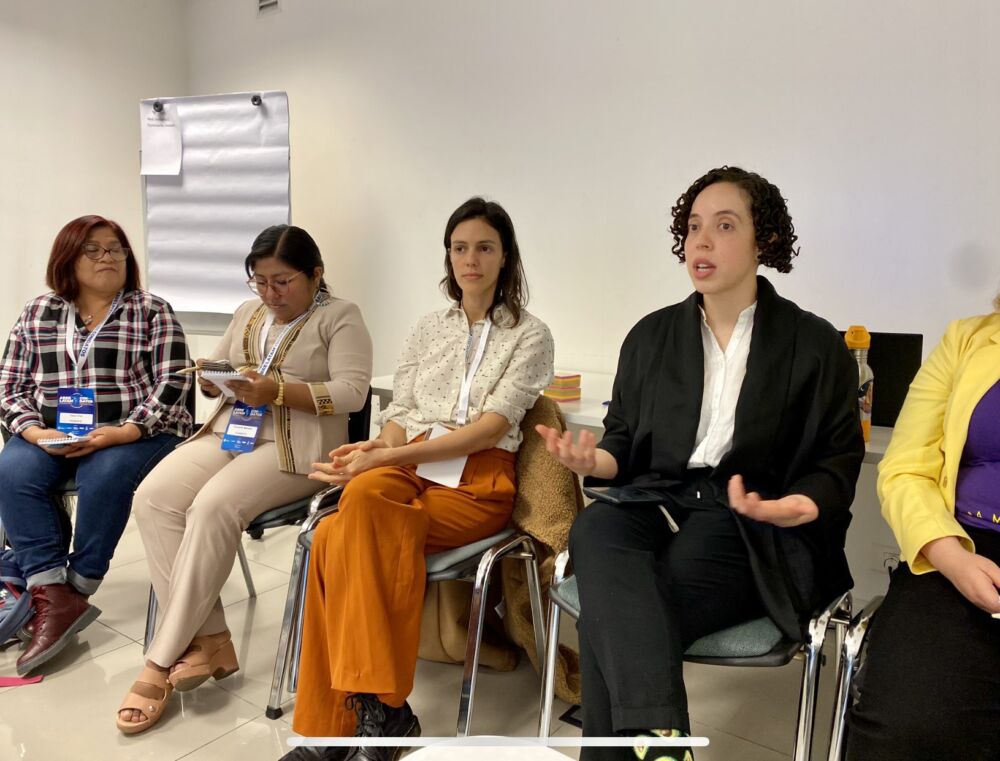
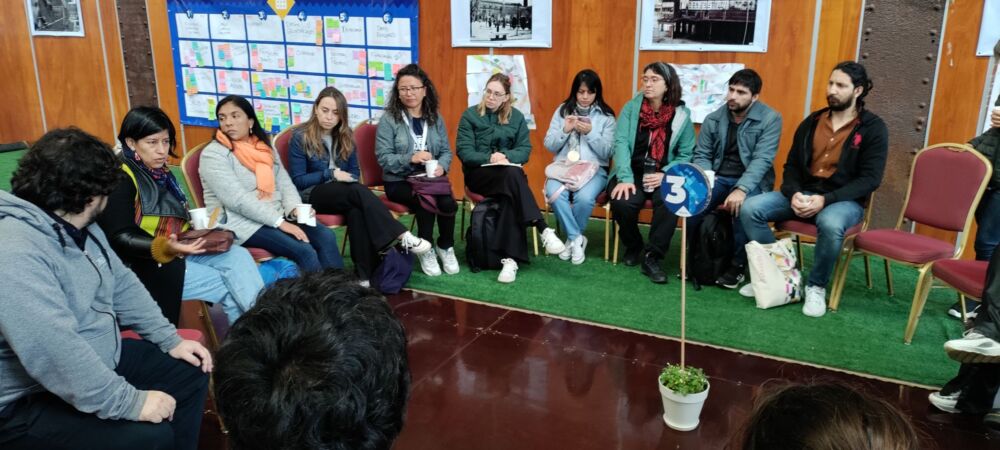
Other key events for our digital rights
Participation in each of these events marked a significant chapter in our strong commitment and active role in the Defense of human rights in digital environments. Our presence at these roundtables, international forums, workshops, training sessions and international meetings underscores our contribution to the current debates shaping Internet governance and public policy, giving us the opportunity to share our work, acquire new knowledge and collaborate in building a more inclusive digital future:
- Global Trends in Human Rights and Democracy Online – Sao Paulo (February 2023). We discussed current trends in human rights and democracy in the digital sphere.
- Ibero-American data protection meeting – Santa Cruz, Bolivia (February 2023) » We were presenters at the discussion table on “Gender-based digital violence and the personal data agenda”.
- Latin American reflections on data justice and digital public goods – Mexico City (February 2023) We participated in this workshop in which we exchanged knowledge among experts and activists from the region with a view to building a Latin American research and incidence agenda that serves as a counterpoint to the polarising narratives of the Global North.
- Dialogue with UN Women Bolivia – Online (March 2023)
#CSW2023 in the presentation “Innovation, technological change, and education in the digital era to achieve gender equality and empowerment of all women and girls” organised by ONU Women Bolivia. - C20 for Technology, security, and transparency – Online (March 2023)
We participated in this policy dialogue that brought together international CSOs to contribute to the process of recommending policies that represent the voices of civil society in the face of the G20. TEDIC shares the research on security, technology and borders that we have been working on in partnership with Data Privacy Brazil and Privacy International. - Forum 2000: Technology and Democracy – Sao Paulo (March 2023) We were present at the talk “Civic space and digital threats to democracy”, discussing the state of civic space in the region and the role of technology in this scenario.
- Workshop on cybersecurity and feminisms – Online (March 2023)
In this workshop, organised by the University of Antioquia of Colombia, Maricarmen Sequera was in charge of this space, where they talked about the identification of routes to make digital environments less hostile and violent for women and diverse populations. - ADC in Focus: elections and technology – Online (April 2023) In view of the general elections in Paraguay, we participated in the panel on “Electoral propaganda expenditure in Social Networks” together with other organisations in the region.
- Crypto Rave – Sao Paulo (May 2023)
We participated in the discussion table “We take care of each other; your digital health is important”, presenting our projects on digital care with a focus on human rights. - Workshop: Human rights and technology, an educational dialogue – Online (June 2023) Eduardo Carrillo, co-director of TEDIC, was in charge of a 60-minute lecture to students from the international relations faculty of the Latin American University of Science and Technology of Costa Rica, discussing the intersection of human rights and technology.
- CPDP Latam – Rio de Janeiro/Online (July 2023) We were in charge, together with specialists from the region, of the panel discussion on “The regulation of national identity systems: a proposal for regional cooperation”.
- Americanist Congress on Technology and Human Rights in Border areas – Foz do Iguaçu (July 2023) We present the exploratory study: Technology and Human Rights in Border areas that explore the security programs CIOF/Muralha Inteligente (Brazil) and the Automated Migratory System of Facial Recognition (Paraguay), proposing a space for reflection for the analysis of various border security programs that have a component of digital technologies, in order to understand the risks and opportunities in this area and from a human rights perspective.
- FITS Democracy – Barranquilla/Online (August 2023)
We share the experience of #ElAvizor, a platform where reports of electoral irregularities during the April elections in Paraguay were documented in the workshop: Electoral observation in action: digitising citizen surveillance. - Open and inclusive parliaments: experiences and strategies in Latin America – Brasilia (August 2023) We participated in the discussion organised by ParlAmericas and the Federal Senate of Brazil on issues related to gender equality in parliaments, such as addressing gender-based violence and care policies. In addition, we shared experiences and good parliamentary practices, both at the functional and administrative levels and in the legislative sphere.
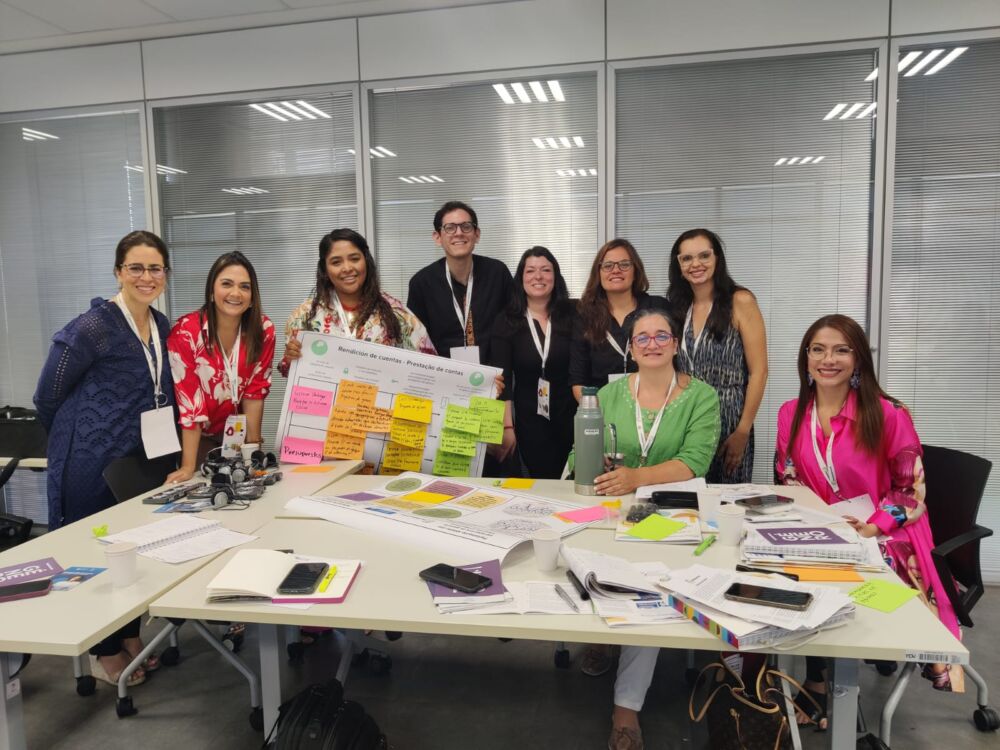
- HackCorrupción: Technological innovation against corruption – Bogotá (August 2023) Together with a team of technologists, civil society professionals and activists interested in creating tools to fight corruption, this workshop was formed to propose a solution to monitor the acquisition of mass surveillance technology in the region and thus achieve a more transparent Latin America.
- Youth LACIGF – Bogotá/Online (August 2023) We participated in the panel on “Ensuring safety for LGBTQIAPN+ human rights defenders and hate speech in social networks.”
- Incidence communication workshop – Guatemala (August 2023) With the unified objective of strengthening communities, Maricarmen Sequera, co-director of TEDIC, attended this event where leaders and activists from Central America shared the challenges inherent to our projects, as well as strategies to achieve an effective implementation that generates a real and sustainable impact in the communities.
- How Transnational are Tech Harms? – Online (September 2023). In this event organised by the Global Coalition for Technology Justice, we participated in the talk on the analysis of the negative impacts of technology and its relationship with elections from a human rights perspective.
- Seminars in Latin America on freedom of expression – Online (October 2023) Columbia Global Freedom of Expression and UNESCO, together with the Foundation for Press Freedom, developed this space to address the different contemporary problems of freedom of expression in Latin America. From TEDIC, we participated in the debate related to Content moderation in social networks: who decides what should be on the Internet?
- International Forum on Democratic Rules for AI – Online (October 2023)
We contribute to the discussion on a possible democratic governance of Artificial Intelligence. - LAPOP: The Public and the Democracy in the Americas – Online (November 2023) We participated in the panel discussion “Democracy and Usability? Three Years after the Implementation of electronic voting in Paraguay”.
- Seminar on data governance and artificial intelligence in Mercosur – Online (November 2023) We participated in the panel: “Data governance in the era of digital transformation in Mercosur”, exploring the experiences of the countries of the region and the challenges that must be faced today in the adoption of technological leaps in countries of the Southern Cone, in the face of historical regulatory debts, such as the comprehensive law on personal data protection, especially in Paraguay
- V COSIC Meeting– Uruguay (November 2023)
Our digital security coordinator participated in this meeting, bringing together a network of people and organisations that provide assistance and support in security and protection, with emphasis on digital security, to members of civil society, including activists, independent journalists, media, students, collectives, who defend human rights. - I Seminário Big Techs, informação e democracia na América Latina – Sao Paulo (December 2023). Our co-director, Maricarmen Sequera, was a panellist in the block “Plurality and media education”, talking about the economic regulation of digital platforms, alternatives to avoid abuses of power by large companies that control the Internet and the lack of plurality and diversity of information in digital environments.
Impact on global regulations and positioning
As an organisation committed to human rights, we join the international community and other human rights and digital rights organisations in advocacy on international regulations, as well as in denouncing human rights abuses, requesting respect, protection and guarantee of our fundamental rights through positions, collective actions and participation in consultations with international organisations. To meet this objective, this year:
We send our contributions to the Global Digital Compact (GDC)
Global Digital Compact (GDC) is an open consultation led by the UN Secretary-General’s Tech Envoy. This Compact seeks to outline shared principles for an open, free and secure digital future for all. It is hoped that it can become a common agenda on a number of critical internet issues, including enforcement of human rights online, the introduction of accountability criteria for discrimination and misleading content, connectivity, avoiding internet fragmentation, data protection and regulation of Artificial Intelligence.
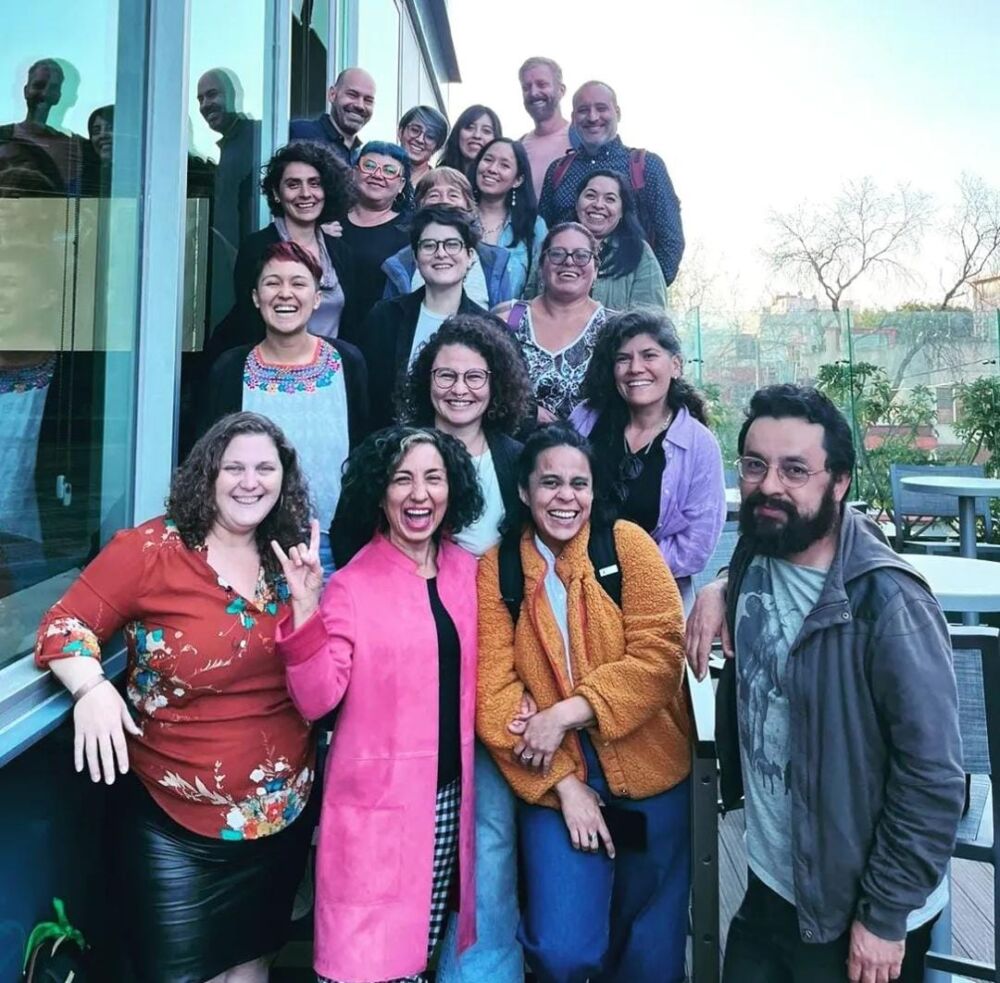
As members of the Alsur consortium, we participated in the regional consultations of the Global Digital Compact in Mexico City in February, providing a regional perspective from the Global South. AlSur’s proposals include contributions to almost all of the agenda items proposed by the GDC. These were drafted after a series of collective meetings and joint actions based on the experience of the 11 members of AlSur in the eight countries where we work, and summarise six years of trajectory and joint reflection on the challenges, realities, lessons learned and proposals, systematised in more than 20 collective publications available in English, Portuguese and Spanish.
A cross-cutting gender perspective
Along with international cooperation, we believe that the Global Digital Compact (GDC) must be based not only on universal standards that take a human rights-based approach but must also recognise the differentiated impact that information and communications technologies have on women, girls and people of diverse genders and sexualities. This is why, as members of the Association for Progressive Communications (APC) network, we signed a charter with a set of feminist principles for the GDC to ensure that the ongoing digital transformation of our economies and societies can usher in a gender-just and an affirmative world for all people and their path to self-realisation.
We participated in UNESCO’s “Internet for Trust” Conference
In parallel, we actively participated in the “Internet for Trust” conference organised by UNESCO in Paris. This event, organised by UNESCO, addressed discussions on the regulation of platforms in order to formulate guidelines for the global regulation of digital platforms. From TEDIC, together with other AlSur member organisations, we contribute with our research and experiences on platform regulation from a human rights perspective that guarantees the protection of our freedom of expression and access to information.
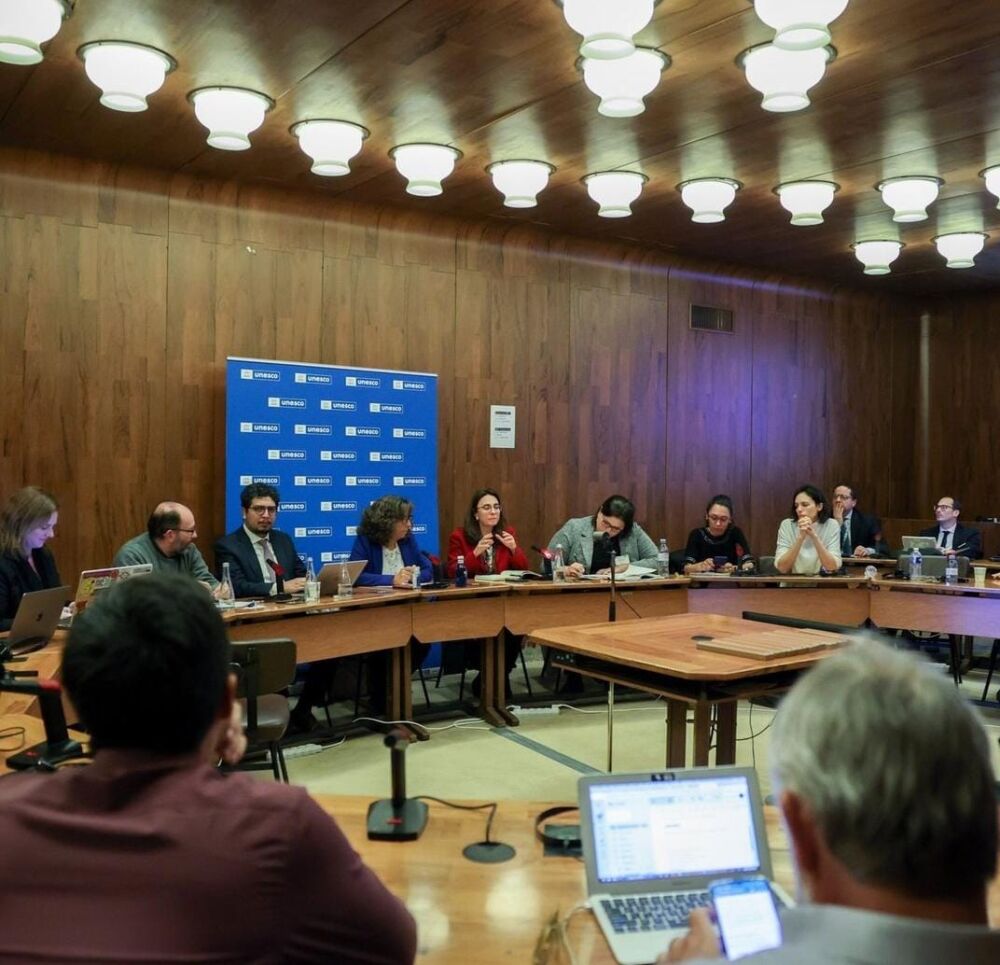
Through our participation in panels and discussions, we emphasised the need for a balance between regulating digital platforms and safeguarding plurality and diversity of information, especially highlighting the importance of counteracting abuses of economic power by large technology companies.
We take a stand against the violation of rights in Gaza
The human catastrophe that is occurring in the Gaza Strip and that has escalated since October 7, 2023, calls us as an organisation to make a collective position calling for a ceasefire and attention to the human rights that are currently being violated. TEDIC supports and subscribes to international charters against these attacks, focusing our concerns on attacks on civil communication infrastructures and the responsibilities of content intermediaries.
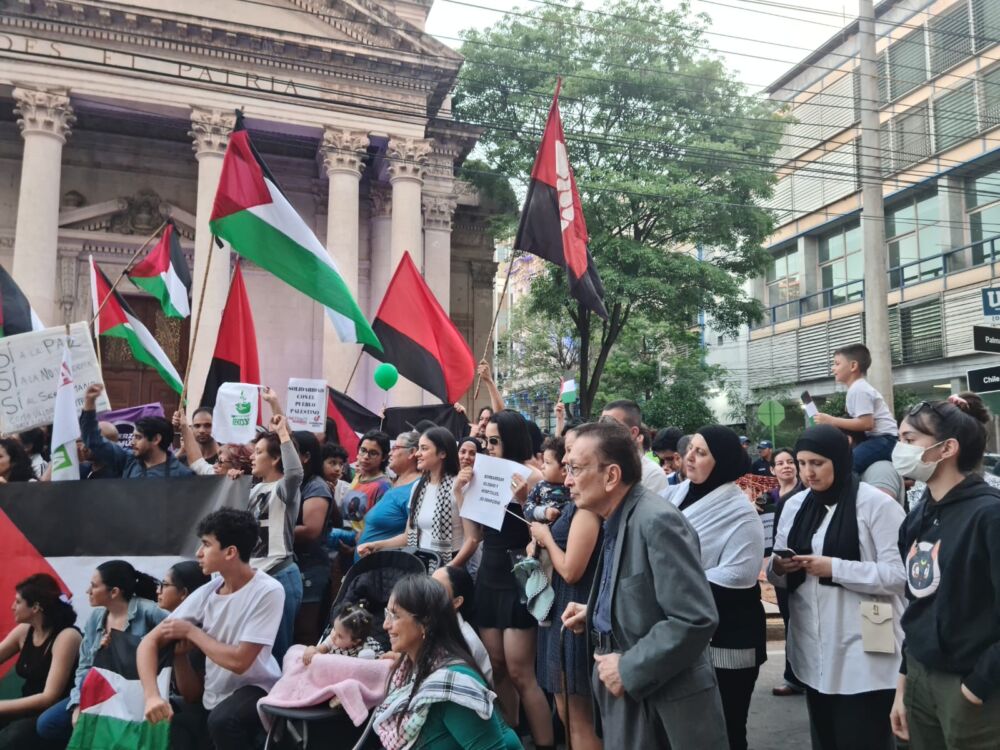
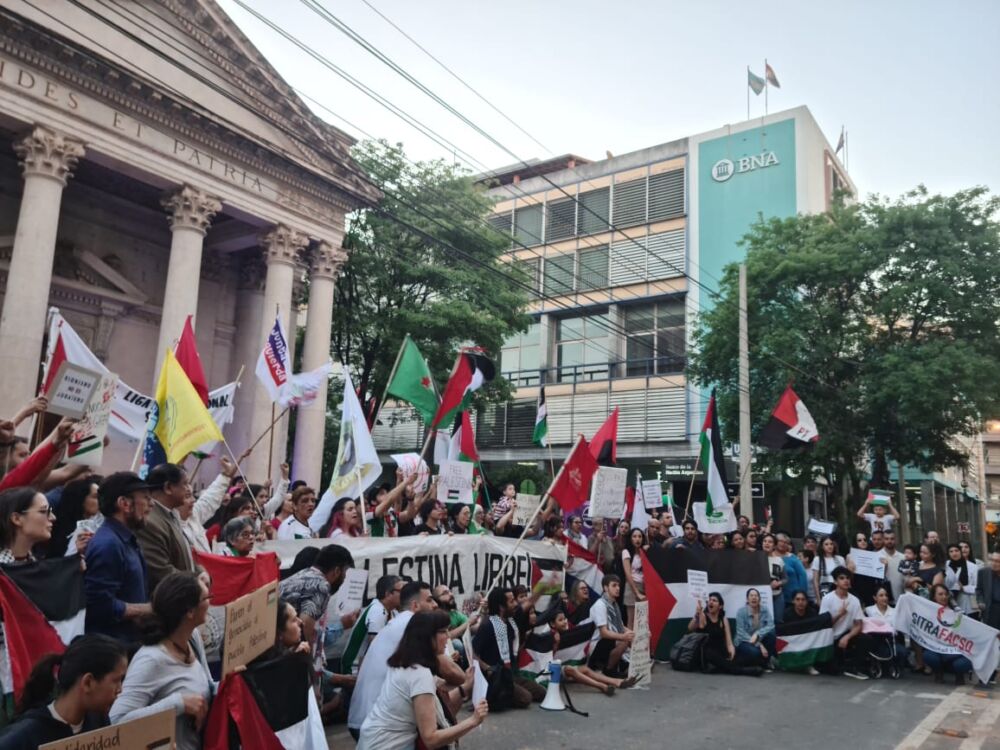
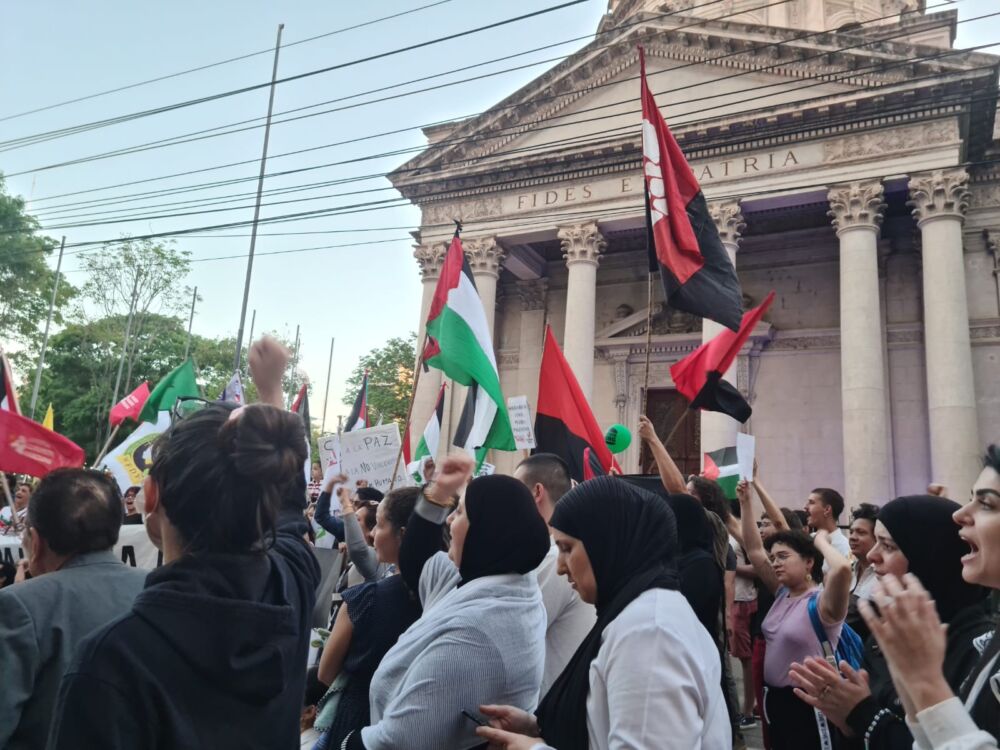
In addition, we took our demands to the streets of Asunción, urging the Paraguayan authorities to reconsider their vote in the UN General Assembly, in which they opposed the resolution approved by a majority that promoted the cessation of hostilities in Gaza. Our position is clear: we stand in solidarity with Palestine, condemning attacks on telecommunications and censorship in networks, while urging technology companies and governments to combat hate speech and respect freedom of expression.
Making visible the importance of talking about digital identity
The discussion on digital identity takes on crucial importance in the current context, given the multiple concerns that emerge with the implementation of modern identification systems. Identification systems present significant risks, as they can facilitate the profiling, surveillance and targeting of individuals, representing a serious infringement of privacy and human rights. For this reason, we join Privacy International’s #IdentityCrisis campaign.
As we look back on our journey this year, it is essential to highlight our commitment and effort in networking and working systematically with various international networks. Our active participation in networks and coalitions such as CAOV, el Foro de la Sociedad Civil de Datos Personales (FSC), GNI, WRO, APC, AlSur, Relatoría Especial de Libertad de Expresión de la OEA, UNFPA, among others, is a fundamental pillar in our advocacy work at the international level, enabling collaborative and cross-border work that strengthens our influence and broadens our perspective, allowing us not only to share our experiences and learning from Paraguay but also to enrich ourselves with the valuable contributions of these networks. This year was full of challenges and learning, and our participation in these global spaces reaffirms our commitment to continue fighting for a future where digitalisation is harmoniously aligned with human rights, both in Paraguay and in the rest of the world.

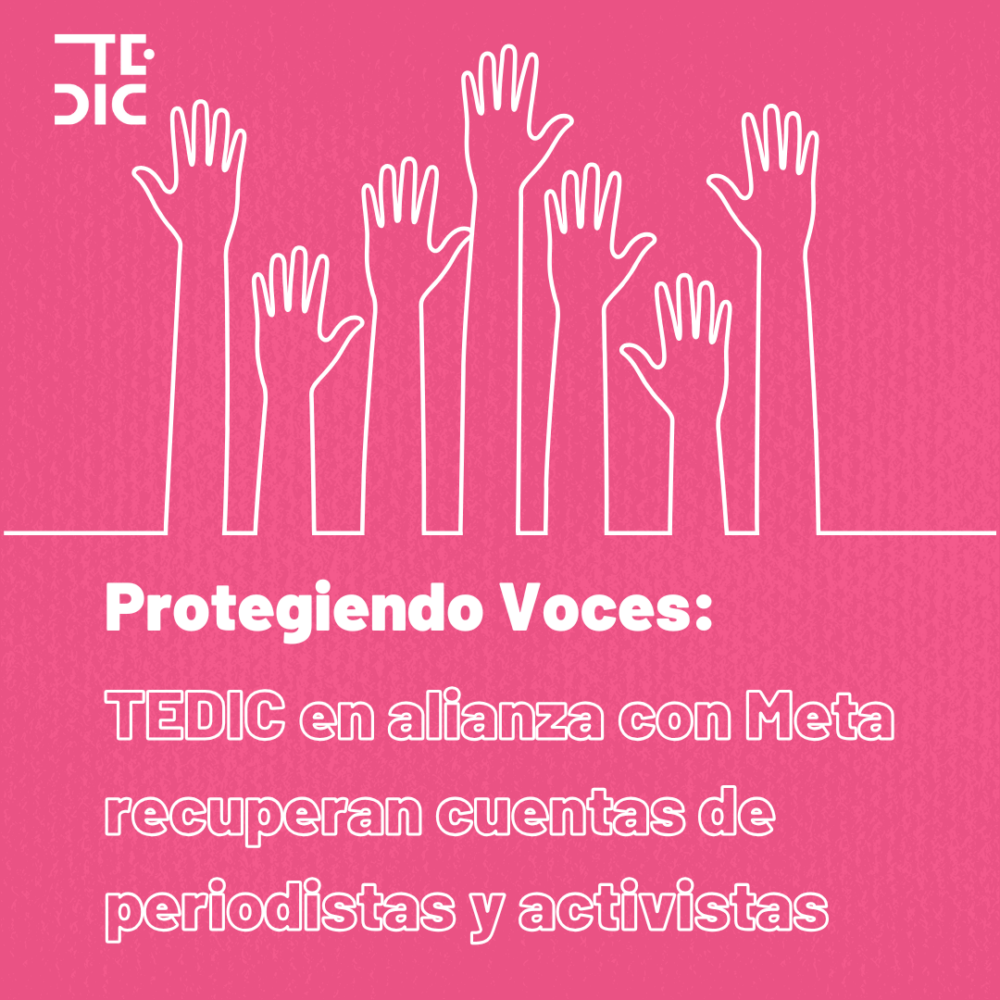 Defending those who defend us
Defending those who defend us